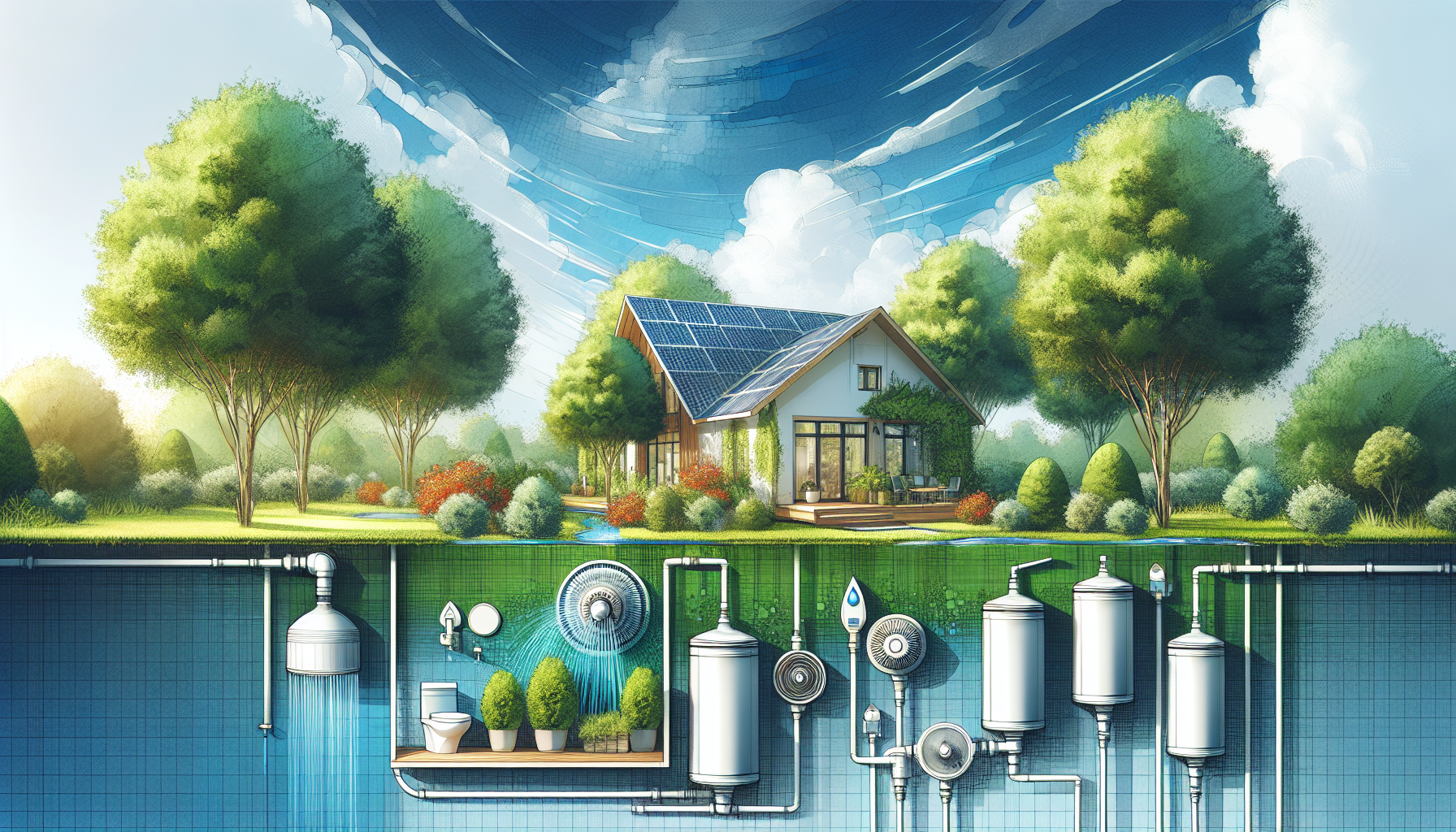Water resource management can feel like navigating a leaky boat—there’s a lot to consider, and it can be overwhelming. Whether you’re a decision-maker, a conservation enthusiast, or just someone who wants to ensure future access to clean water, the challenges are real and significant.
But don’t worry! If you stick around, I’ve got some fantastic prompts that will guide you in tackling these issues head-on. You’ll discover how to assess water quality, plan sustainable usage, and engage your community in making a difference.
So, grab a beverage and dive into some practical tips that can help you manage water resources more effectively. Together, let’s make waves in water management!
Key Takeaways
- Water resource management is essential for addressing global water scarcity and ensuring sustainable supply.
- Effective strategies include water conservation, groundwater and surface water management, and watershed protection.
- Utilizing AI tools like ChatGPT can facilitate careful planning and innovative discussions in water management.
- Key prompts to improve water quality and usage can help generate actionable insights for better management practices.
- Robust policy development is critical; it should include stakeholder engagement and climate change considerations.

Best ChatGPT Prompts for Water Resource Management
Water resource management is crucial for addressing the growing global water scarcity challenges.
Using AI tools like ChatGPT can help facilitate discussions, generate ideas, and streamline planning in this area.
Here are some effective prompts you can copy and paste to get the most out of ChatGPT for water resource management:
- “Generate a plan for a water conservation campaign targeting urban communities.”
- “List innovative technologies to improve water quality monitoring in rural areas.”
- “Create a questionnaire for assessing public awareness of water scarcity issues.”
Understanding Water Resource Management and Its Importance
Water resource management involves planning, developing, and managing water resources efficiently.
Its importance cannot be overstated, especially considering the rising water scarcity issues driven by climate change and population growth.
It aims to ensure sustainable water supply while protecting water ecosystems, which is vital for agriculture, industry, and domestic needs.
Effective water management helps mitigate the impact of droughts and floods, maintaining a balance that is essential for life.
In short, it’s about making every drop count!
Key Areas of Focus in Water Resource Management
To ensure effective water resource management, several key areas should be prioritized:
- Water Conservation Strategies: Encourage practices aimed at reducing water use and waste.
- Groundwater Management: Focusing on the sustainable use of groundwater resources.
- Surface Water Management: Techniques for managing lakes, rivers, and reservoirs.
- Watershed Management: Addressing land usage to prevent soil erosion and protect water sources.
- Integrated Water Resources Management (IWRM): A holistic approach that considers the entire water cycle and various stakeholders involved.
- Water Supply and Demand Balance: Ensuring the water supply meets current and future demands through effective allocation policies.
Prompts for Assessing Water Quality
Assessing water quality is essential for public health and environmental protection.
To utilize ChatGPT for evaluations of water quality, consider using these prompts:
- “List the key indicators for assessing drinking water safety in urban areas.”
- “Explain the common pollutants found in freshwater sources and their impacts.”
- “Suggest methods for testing and monitoring wastewater treatment effectiveness.”
These prompts can help produce actionable insights for maintaining high water quality standards.

Prompts for Planning Sustainable Water Use
Planning sustainable water use is essential for preserving resources for future generations.
Use these prompts with ChatGPT to generate ideas and strategies for effective water use planning:
- “Outline a comprehensive plan for implementing rainwater harvesting in a suburban community.”
- “List the benefits of smart irrigation technologies and how they can be incorporated into existing systems.”
- “Create a guide for promoting water-efficient appliances and fixtures in households and businesses.”
- “Identify sustainable practices for agricultural water use that can increase crop yield while conserving water.”
- “Suggest policies for local governments to encourage water use reduction in urban areas.”
These prompts can help foster innovative approaches to sustainable water management.
Prompts for Managing Water Supply and Demand
Effectively managing water supply and demand ensures water availability and reduces wastage.
Here are some prompts that can guide your ChatGPT interactions in this area:
- “Develop a strategy to forecast water demand for a growing city over the next decade.”
- “List key technologies needed for modern water supply infrastructure.”
- “Create a plan for implementing demand-side management programs in a municipal water utility.”
- “Suggest methods for equitable water allocation among different sectors (residential, agricultural, industrial).”
- “Outline a contingency plan for drought response to manage water supply effectively.”
These prompts can help to balance water supply and demand dynamics in any community.
Prompts for Enhancing Water Conservation Efforts
Water conservation efforts are vital in combating scarcity and promoting sustainability.
Here are several prompts to kickstart discussions on conservation strategies:
- “Draft a campaign plan for increasing public awareness around water conservation techniques.”
- “List practical water-saving practices that households can adopt on a daily basis.”
- “Suggest incentives that could be offered by municipalities to encourage water conservation among residents.”
- “Create a survey to identify community attitudes towards water-saving initiatives and barriers they face.”
- “Outline a plan for implementing drought-resistant landscaping in public spaces.”
Using these prompts can amplify the importance of water conservation in various communities.
Prompts for Policy Development in Water Management
Sound policies are fundamental to achieving effective water resource management.
Here are actionable prompts that can help shape water management policies:
- “Discuss the key elements that should be included in a new water management regulation.”
- “Create a framework for stakeholder engagement during the policy development process.”
- “List the best practices for integrating climate change considerations into water policy.”
- “Propose strategies to address the policy implications of emerging water scarcity challenges.”
- “Draft a comprehensive water governance framework that promotes sustainability and inclusivity.”
These prompts can help create robust policies that support comprehensive water management efforts.

Prompts for Engaging Communities in Water Management
Community engagement is essential for the success of water management efforts.
Involving local residents helps foster a sense of ownership and accountability.
Here are some prompts to prompt productive discussions around community engagement in water management:
- “Design a community workshop series aimed at educating residents about local water challenges.”
- “List strategies for building local stewardship to enhance water resource management.”
- “Create a plan for starting a volunteer initiative focused on cleaning local water bodies.”
- “Outline ways to involve community members in policy decision-making processes related to water resources.”
- “Develop a survey to assess community attitudes towards current water management practices.”
These prompts will help inspire initiatives that actively involve communities in protecting their water resources.
Examples of Successful Water Resource Management Projects
Learning from successful projects can provide valuable insights into effective water management.
Here are some exemplary prompts to evaluate real-world case studies in water management:
- “Research a case study of a successful rainwater harvesting project and summarize its key components.”
- “Identify an innovative water conservation project in a major city and list its outcomes.”
- “Examine a collaborative initiative between local governments and community organizations for watershed management.”
- “Discuss the lessons learned from a failed water resource management initiative and how it could inform future efforts.”
- “Explore a project that has successfully integrated technology in monitoring water quality and its impacts.”
Using these prompts can lead to valuable discussions and ideas based on proven strategies in water resource management.
FAQs
Water resource management involves the planning and management of water resources to ensure sustainable use and quality. It is crucial for public health, ecosystem stability, and meeting agricultural, industrial, and municipal needs.
Chat prompts can guide users to examine water quality metrics such as pH, turbidity, and contaminant levels. They facilitate structured discussions on data collection and analysis for informed decision-making.
Strategies for sustainable water use include implementing water-efficient technologies, creating policies for responsible usage, and promoting community involvement in conservation efforts to optimize resource management.
Engaging communities in water management can be achieved through educational programs, participatory planning processes, and incentivizing local conservation initiatives, fostering a sense of ownership and responsibility.
